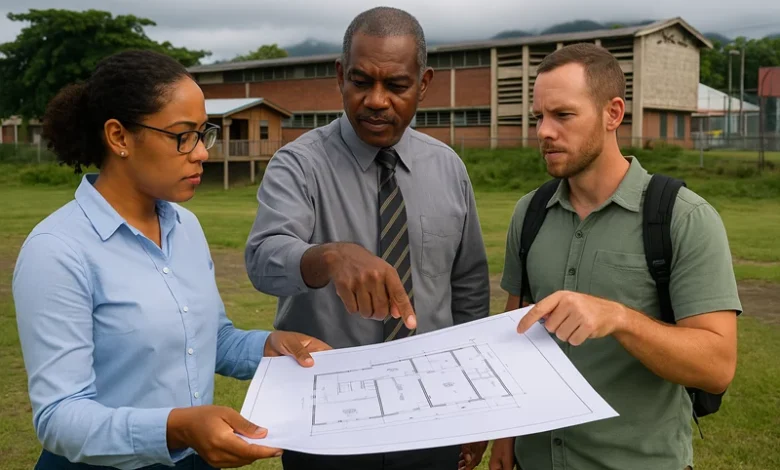Dominica’s Building Code

Dominica’s Building Code establishes the standards for construction and development across the island, aiming to ensure safety, resilience, and sustainability in the built environment. Rooted in comprehensive legislation and supported by various agencies, the code addresses the unique challenges posed by Dominica’s geographical and climatic conditions.
Legislative Foundation
The primary legislative instrument governing building practices in Dominica is the Physical Planning Act of 2002. This Act provides for the orderly and progressive development of land in both urban and rural areas, with an emphasis on preserving and improving amenities. It grants the Physical Planning Division the authority to regulate construction activities, ensuring that developments align with national policies and standards.
In alignment with the Act, the Building Regulations 2022 were introduced to provide detailed guidelines for construction practices. These regulations encompass various aspects of building design and construction, ensuring that all developments are in concert with the physical, social, and economic environment of the Organization of Eastern Caribbean States (OECS).
Structure of the Building Code
The Building Code is organized into several sections, each addressing specific components of construction and development:
- Administration of the Code: Outlines the responsibilities of stakeholders, including builders, owners, and regulatory bodies.
- Definitions: Provides clear explanations of terms used within the code to ensure uniform understanding.
- General Requirements: Details the fundamental principles and standards applicable to all construction projects.
- Materials and Construction Standards: Specifies acceptable materials and construction methods to ensure structural integrity and safety.
- Fire and Safety Requirements: Establishes protocols to minimize fire hazards and ensure occupant safety.
- Sewage and Waste Water Disposal: Provides guidelines for the proper management of sewage and wastewater to protect public health and the environment.
- Structural Design Requirements: Sets forth criteria for structural calculations and considerations to withstand environmental loads.
- Small Building Requirements: Offers simplified guidelines tailored for the construction of smaller structures, such as private dwellings and small retail shops.
These sections collectively ensure that construction practices adhere to safety, durability, and environmental sustainability standards.
Key Agencies and Organizations
Several agencies and organizations play pivotal roles in the implementation and enforcement of Dominica’s Building Code:
- Physical Planning Division: As the primary regulatory body, it oversees land use and development, granting permissions, and ensuring compliance with the Building Code.
- Ministry of Housing and Urban Development: This ministry is responsible for policy formulation and oversight related to national development and planning.
- Environmental Health Unit: Collaborates in assessing and approving sewage and wastewater disposal systems, ensuring public health considerations are met.
- Fire Prevention Unit: Evaluates fire safety measures in building designs, ensuring adherence to fire and safety requirements.
- Water and Sewerage Company (DOWASCO): Provides input on water supply and sewage disposal aspects of construction projects.
These entities work collaboratively to uphold the standards set forth in the Building Code, ensuring that construction practices contribute positively to Dominica’s development.
Compliance and Enforcement
Compliance with the Building Code is mandatory for all construction projects in Dominica. The Physical Planning Division is tasked with reviewing development proposals, issuing permits, and conducting inspections to ensure adherence to the code. Builders, owners, and occupiers are all held accountable for compliance, with specific obligations outlined in the regulations. Non-compliance can result in penalties, including fines and orders to halt or modify construction activities.
Training and Capacity Building
Recognizing the importance of effective enforcement, initiatives have been undertaken to strengthen building code compliance. For instance, technical teams have developed comprehensive training programs aimed at building professionals and government stakeholders. These programs focus on enhancing understanding and application of the Building Code, improving communication about the benefits of compliance, and conducting public outreach to promote adherence.
Strategic Outlook
Dominica’s Building Code serves as a critical framework ensuring that construction and development activities are conducted safely, sustainably, and in harmony with the island’s environmental and socio-economic context. Through robust legislation, detailed regulations, and the concerted efforts of various agencies and organizations, Dominica continues to promote resilient and responsible building practices.




